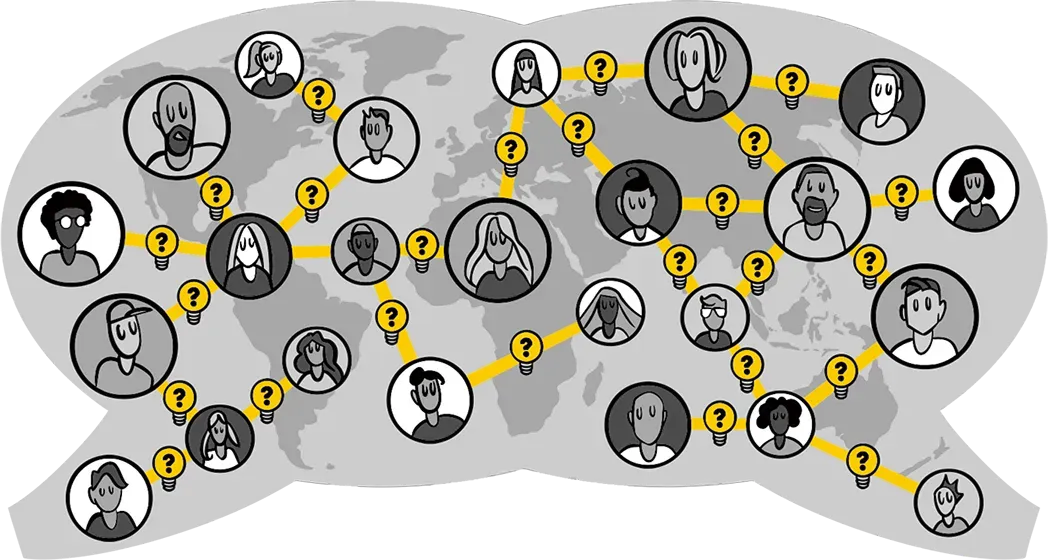Thinking About Thinking Critically
Foster Reflection, Growth, and Self-Awareness Through Meta-Cognition

How Street Epistemology Supports Critical Reflection and Meta-Cognition
Street Epistemology (SE) provides powerful tools for fostering critical reflection and meta-cognition. By encouraging individuals to pause, reconsider, and reflect on their beliefs, SE helps people explore cognitive dissonance and reconsider assumptions. This process of "thinking about thinking" empowers individuals to refine their beliefs, challenge ingrained patterns of reasoning, and increase self-awareness.
SE promotes the development of reflective thinking habits and meta-cognitive skills, encouraging individuals to assess their reasoning processes, explore moments of doubt (aporia), and foster cognitive dissonance constructively. This process is essential for personal growth, intellectual humility, and improving decision-making and belief systems..
Find the Best Fit for You
You've landed on a page about Street Epistemology, a way of helping people reflect on the quality of their reasoning through civil conversation. Take our free self-paced course called Navigating Beliefs or learn more about the organization behind these world changing projects.

Street Epistemology
International
The organization behind the development of the Navigating Beliefs course, supporting Street Epistemology's practice and offering resources for critical thinking and civil conversation.
Explore SE strategies for fostering cognitive dissonance and developing reflective thinking habits.

Applying Street Epistemology to Reflection and Cognitive Dissonance
Street Epistemology provides practical methods for fostering critical reflection and promoting meta-cognition in conversations. By examining cognitive dissonance in beliefs, questioning personal assumptions, and creating space for reconsideration, SE helps individuals explore and refine their thinking. This process encourages individuals to examine their beliefs critically, assess reasoning processes, and engage deeply with their own thought patterns.
SE encourages questioning assumptions, fostering pauses for reflection, and generating aporia moments to challenge cognitive dissonance. These techniques help individuals reassess beliefs and foster intellectual growth. Whether reflecting on personal beliefs or engaging in philosophical discussions, SE provides valuable tools for exploring thought processes and promoting self-improvement.
Exercises for Deepening Reflection and Meta-Cognition
Fostering critical reflection and meta-cognition requires practice, and SE offers structured exercises to support this process. Activities like pausing for deeper reflection, generating cognitive dissonance constructively, and exploring aporia moments help individuals engage in thoughtful reconsideration of beliefs. These exercises promote self-awareness, intellectual humility, and the development of critical thinking skills.
Beginners can start with reflective exercises for self-awareness and techniques for questioning beliefs. Advanced practitioners can focus on strategies for exploring cognitive dissonance in discussions and refining reasoning techniques. These practices encourage growth, improve intellectual rigor, and promote thoughtful dialogue in a variety of contexts.

Free Learning Course for Evaluating Evidence and Justifications
Ready to explore reasons and justifications critically? The Navigating Beliefs course offers Street Epistemology tools to analyze evidence, evaluate justifications, and refine the foundations of your beliefs through thoughtful questioning and dialogue.
GO TO COURSE ➔



